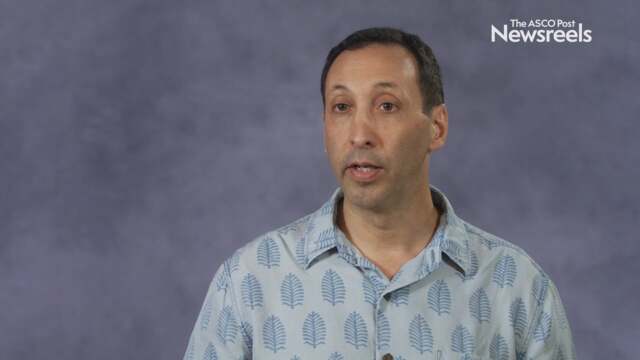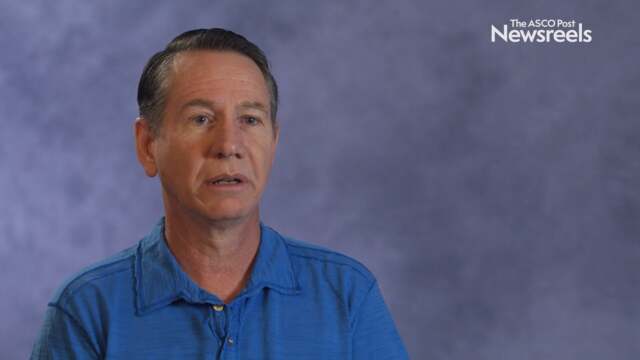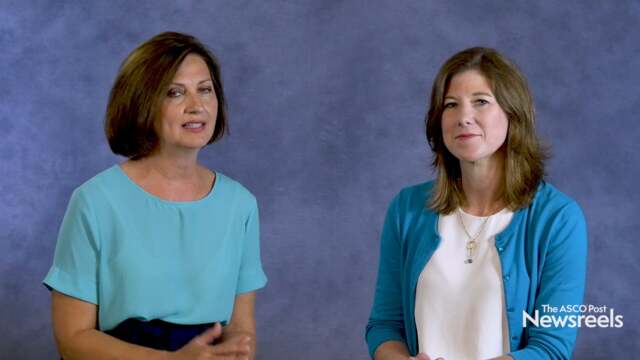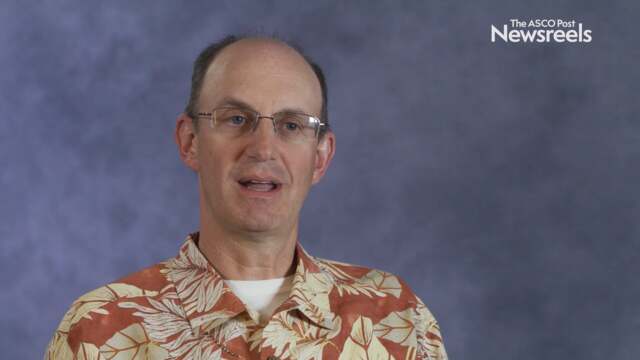Julie M. Vose, MD, MBA, and David G. Maloney, MD, PhD, on NHL: Update on CAR T-Cell Therapies
Pan Pacific Lymphoma Conference 2018
Julie M. Vose, MD, MBA, of the University of Nebraska Medical Center, and David G. Maloney, MD, PhD, of Fred Hutchinson Cancer Research Center and winner of this year’s Oliver Press Memorial Award, discuss three CAR T-cell products for lymphoma treatment, comparing their efficacy, toxicity, ease of use, and the clinical resources needed.
Related Videos
Steven M. Horwitz, MD, of Memorial Sloan Kettering Cancer Center, discusses aggressive subtypes of peripheral T-cell lymphoma and the coming data that may help clarify what could be the most effective treatments.
Peggy Burhenn, MS, RN-BC, AOCNS, of the City of Hope National Medical Center, discusses the challenges of working with older lymphoma patients and the importance of effective geriatric assessments.
Stephen M. Ansell, MD, PhD, of the Mayo Clinic, discusses the efficacy of PD-1 blockade in Hodgkin lymphoma, new findings related to PD-1 therapy, current combination approaches, and future treatments.
Susan Blumel, RN, BSN, of the University of Nebraska Medical Center, and Laura J. Zitella, MS, RN, ACNP-BC, AOCN, of Stanford Health Center, discuss immunotherapy, CAR T-cell toxicities, and the principles of team management.
Jonathan W. Friedberg, MD, of the University of Rochester Medical Center, discusses treatments that enhance progression-free and overall survival and clear minimal residual disease—obinutuzumab plus chemotherapy, lenalidomide, and rituximab—and the types of lymphoma patients who may benefit.





